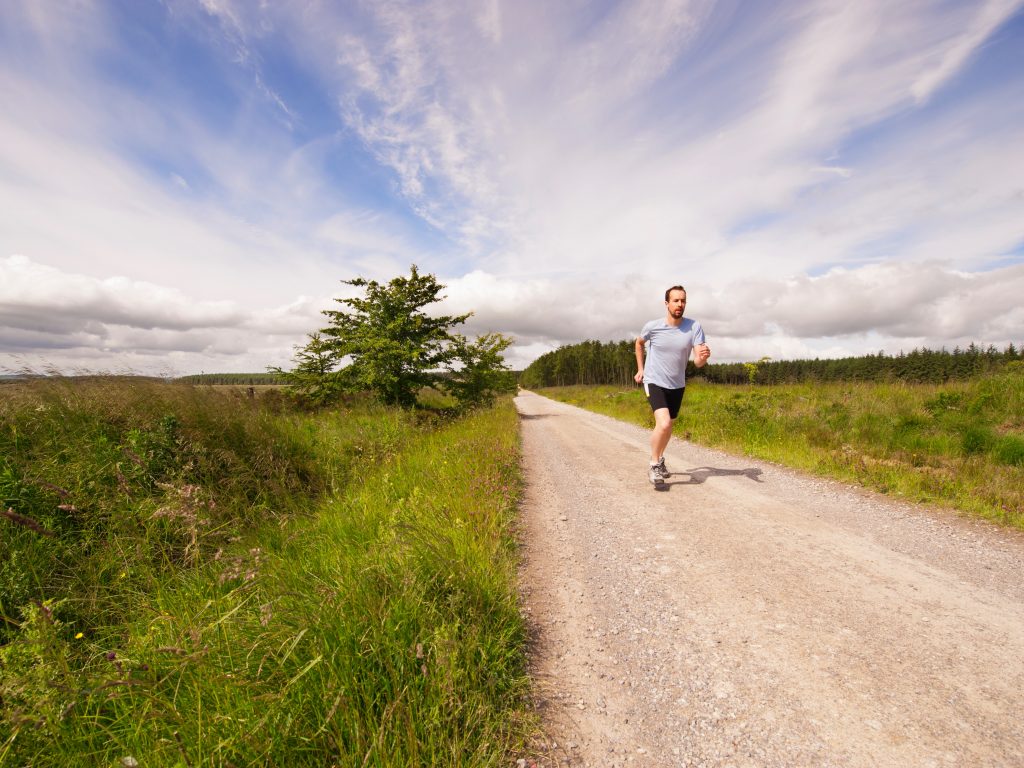12th April 18

With the London Marathon fast approaching, we asked our personal trainer Paul McBride for his advice on running, training, and recovering from the biggest race in the country. With over 40,000 competitors running 26.2 miles, it’s important to be prepared!
This is what he told us…
“When it comes to running, form and technique are super important. Bad form can lead to injury – most commonly knee pain or shin splints. Keeping your shoulders relaxed, your back straight and your abs engaged will take care of your upper body; when it comes to your legs, lift your knees but try not to bounce too much, as this will waste energy and put a lot of unnecessary impact on your knees.#
To train, a mixture of treadmill and outdoor running can be useful. If you can get to the gym and run on a treadmill in front of a mirror, this will seriously help you focus on your form, as you can ensure you’re keeping your shoulders level and your legs doing most of the work. It’s also important to wear the right footwear to help avoid injury – taking into account whether you under pronate or over pronate.
If you need help getting your technique right, we offer a runners clinic that assesses your running using slow motion video analysis on a treadmill. We can then give advice on form, strengthening and load management strategies, footwear and training tips.
You should really leave around 12-20 weeks to train for a marathon – so hopefully any of you taking part next weekend are nearly there now! Three to five runs a week, at a relaxed pace, covering around 50 miles in total, is a good basis for training. Any extra strength and conditioning you can do – particularly to build up your core muscles and your stamina – is only going to help you when the going gets tough on the day.
In the final week before the event it’s important to relax, eat well, sleep lots, and do a few short runs – but don’t tire yourself out. I’d recommend cutting your usual mileage down to half in the few days before the race, so that your muscles are awake but fresh next weekend. A deep tissue massage and some manipulation from a physio can also be a really good way to get your body feeling great before you race.
In terms of recovery post-marathon, it’s important to increase your carb intake to replenish energy stores and get plenty of sleep. Cryotherapy is an amazing way to relieve pain, and we have a cryo machine at the clinic which can target sore areas, therefore aiding muscle recovery quickly and effectively. A sports massage is also a great idea to speed up muscle recovery and allay any pain or discomfort.
If you want to exercise in the days after the race, start with walking and build up to light jogs. Swimming is also extremely therapeutic and a great way to exercise the whole body gently.
To those of you running next weekend – good luck!”
Check out our new Hitchin clinic here!



